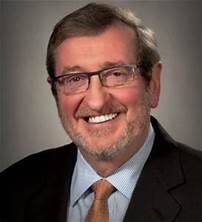
I was disappointed with Michael Dowling, president and CEO of Northwell Health, at the recent discussion he had with Steven Blank, publisher of Blank Slate Media, in one of the series of community talks being held at the Universalist Unitarian Church on Shelter Rock Road.
I expected Dowling to have answers to solving the conundrum of providing health care to all, not just the privileged, and not just gripe about the first successful attempt at universal health care in 80 years. But clearly Obamacare hasn’t been deleterious to Northwell’s business, which has grown into one of the biggest healthcare systems in the country with 23 hospitals, 665 outpatient locations, $11 billion in annual revenues and 66,000 employees.
I expected more than a report from Ireland that a single-payer system doesn’t work because patients have to wait a long time for appointments – a finding that screams for clarification, just as he dismissed the dismal health care outcomes in the United States vs. every other industrialized nation, which actually do have universal healthcare. And his cavalier dismissal of unprecedented declines in life expectancy in the United States, saying that gun deaths (33,000 a year) and the opioid crisis (47,000 deaths last year) factor in is another indictment of this country’s sabotage of the health-care system with foul policies. In fact, I would like to see factored out the cost of healthcare and rehabilitation for the 100,000 people a year who have to recover and possibly live out their lives with gun injuries. And what about the 26,000 people a year who die prematurely for lack of access to health care?
But if a professional like Dowling doesn’t have an answer, who would?
He at first criticized the Affordable Care Act – apparently over more paperwork and regulatory requirements. But said that repealing it without a replacement would be lunacy. Mend it, don’t end it was essentially his position, but he offered no suggestions about how that should be done.
Despite insisting that health costs will never go down (they just might not increase as dramatically as they have, at rates two to five times the rate of inflation), or being unapologetic about hospitals charging more for some services in order to subsidize other services, and taking the oddest position in favor of keeping for-profit insurance companies in the mix despite employing 4,000 people just to fight for payment, he said he was optimistic about health care.
That would seem to come from medical breakthroughs, a shift to tele-medicine, more use of urgent care clinics – things that Northwell has pioneered. He also looks to more robust focus on wellness, prevention – changes to lifestyle, behavior, eating habits, exercise.
But that won’t happen if there is a profit motive.
He referred to “Pharma bro” Martin Shkreli, who famously raised the price of anti-parasitic drug Daraprim from $13.50 a pill to $750 when he took over as chief executive of Turing Pharmaceuticals and said he only regretted not raising the price even more.
And now imagine that medical science has the capability – through organ replacement, artificial parts, biogenetics – to keep people alive to over 100, but people barely earn enough to live through their working years until retirement at 70. How can people afford to live, let alone pay for inevitable health care for 30 more years?
The fact is that everyone alive needs medical care, that we tend to need most of it at the end of life, but that check-ups and early diagnosis can prolong health and wellness, reducing medical expenses along the way, while enabling each of us to be the most productive people we can be. So, yes, everyone should pay into medical care (let’s call it Medicare) throughout our lives in a fair way (that means billionaires who make the bulk of their money from dividends, too).
The model that health care – now 18 percent of GDP – should take is that of a public utility, in the same way that we distribute access to other essential services like water and electricity, even telecommunications.
If we want a corporate health care system, we must have regulation with fair prices and fair price increases that allow for profit and good salaries to be sure, that allow for research, development, and acquisition of state-of-the-art technology, but that are still within reasonable frames. Otherwise, you put a market price on life: How much is your child’s life worth? $10 million? $20 million? It’s more like a ransom that providing a necessary service.
Same with drugs. American taxpayers paid for research and development of those pharmaceuticals, so patients are really shareholders as well as stakeholders in Big Pharma and should be treated as such. Again, like a public utility, there should be reasonable prices and price increases that allow for return on investment and profit but do not extort.
Meanwhile, there is far more that the government should do to make health services accessible: opening more medical schools and training more doctors, giving grants for pursuing needed health careers that can be repaid through supporting clinics in underserved communities; creating more functions that can be performed for specially trained physicians assistants, nurses and midwives. Also, promoting telemedicine, wellness, free annual check-ups (oh wait — this is part of Obamacare), vaccinations, eye and dental care, and, yes, investment in Advanced Precision Medicine, biogenetics, stem cells.
As for single payer: I am quite sure that Ireland and Europe’s healthcare improved because of single payer from before. Moreover, with the benefit of experience, this country is certainly capable of devising a universal health-care system that doesn’t have the same negatives as older systems.


